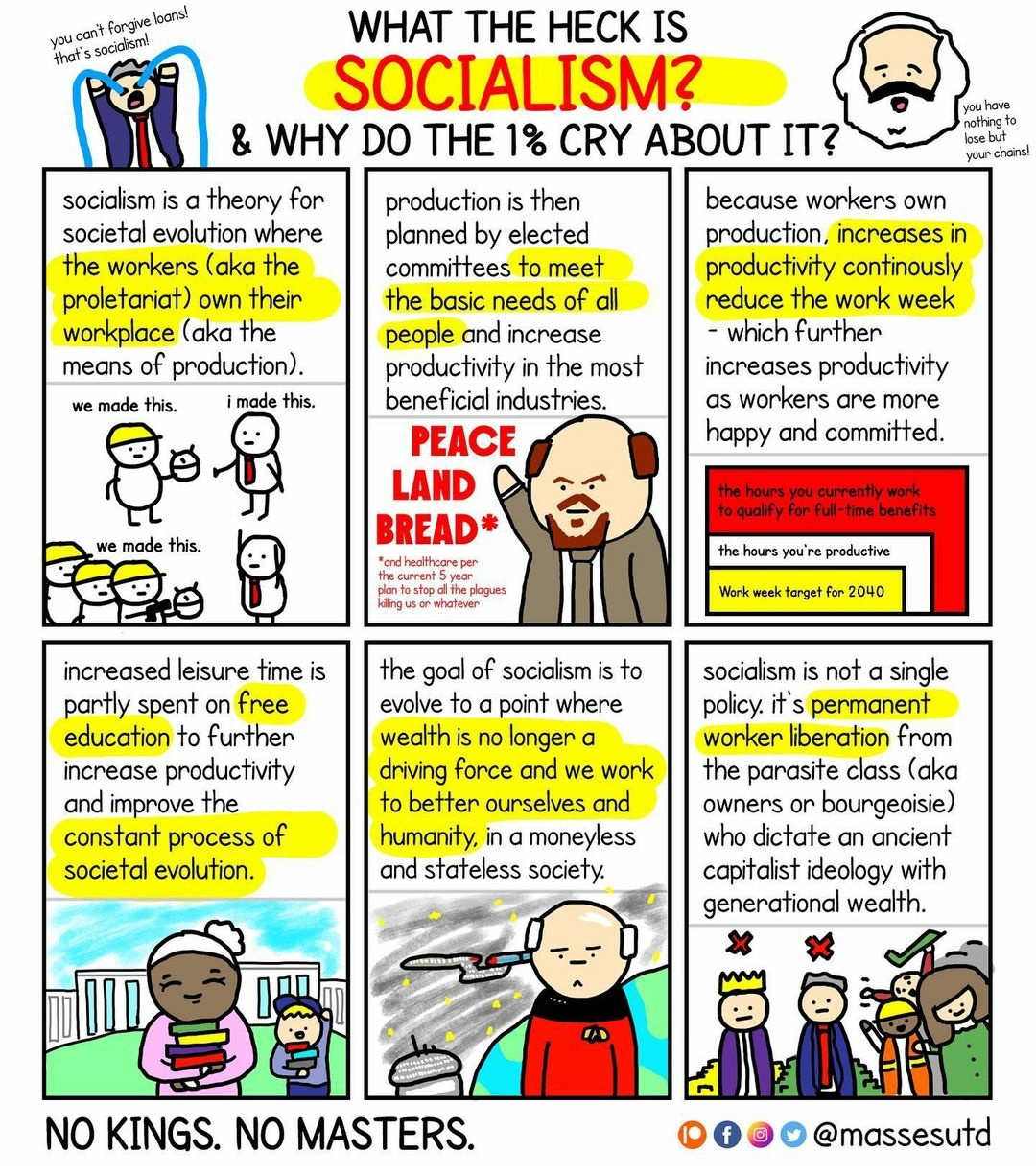this post was submitted on 31 Jul 2024
968 points (94.5% liked)
Lefty Memes
5811 readers
843 users here now
An international (English speaking) socialist Lemmy community free of the "ML" influence of instances like lemmy.ml and lemmygrad. This is a place for undogmatic shitposting and memes from a progressive, anti-capitalist and truly anti-imperialist perspective, regardless of specific ideology.
Serious posts, news, and discussion go in c/Socialism.
If you are new to socialism, you can ask questions and find resources over on c/Socialism101.
Please don't forget to help keep this community clean by reporting rule violations, updooting good contributions and downdooting those of low-quality!
Rules
Version without spoilers
0. Only post socialist memes
That refers to funny image macros and means that generally videos and screenshots are not allowed. Exceptions include explicitly humorous and short videos, as well as (social media) screenshots depicting a funny situation, joke, or joke picture relating to socialist movements, theory, societal issues, or political opponents. Examples would be the classic case of humorous Tumblr or Twitter posts/threads.
(and no, agitprop text does not count as a meme)
0.5 [Provisional Rule] Use alt text or image descriptions to allow greater accessibility
(Please take a look at our wiki page for the guidelines on how to actually write alternative text!)
We require alternative text (from now referred to as "alt text") to be added to all posts/comments containing media, such as images, animated GIFs, videos, audio files, and custom emojis.
EDIT: For files you share in the comments, a simple summary should be enough if they’re too complex.
We are committed to social equity and to reducing barriers of entry, including (digital) communication and culture. It takes each of us only a few moments to make a whole world of content (more) accessible to a bunch of folks.
When alt text is absent, a reminder will be issued. If you don't add the missing alt text within 48 hours, the post will be removed. No hard feelings.
1. Socialist Unity in the form of mutual respect and good faith interactions is enforced here
Try to keep an open mind, other schools of thought may offer points of view and analyses you haven't considered yet. Also: This is not a place for the Idealism vs. Materialism or rather Anarchism vs. Marxism debate(s), for that please visit c/AnarchismVsMarxism.
2. Anti-Imperialism means recognizing capitalist states like Russia and China as such
That means condemning (their) imperialism, even if it is of the "anti-USA" flavor.
3. No liberalism, (right-wing) revisionism or reactionaries.
That includes so called: Social Democracy, Democratic Socialism, Dengism, Market Socialism, Patriotic Socialism, National Bolshevism, Anarcho-Capitalism etc. . Anti-Socialist people and content have no place here, as well as the variety of "Marxist"-"Leninists" seen on lemmygrad and more specifically GenZedong (actual ML's are welcome as long as they agree to the rules and don't just copy paste/larp about stuff from a hundred years ago).
4. No Bigotry.
The only dangerous minority is the rich.
5. Don't demonize previous and current socialist experiments or (leading) individuals.
We must constructively learn from their mistakes, while acknowledging their achievements and recognizing when they have strayed away from socialist principles.
(if you are reading the rules to apply for modding this community, mention "Mantic Minotaur" when answering question 2)
6. Don't idolize/glorify previous and current socialist experiments or (leading) individuals.
Notable achievements in all spheres of society were made by various socialist/people's/democratic republics around the world. Mistakes, however, were made as well: bureaucratic castes of parasitic elites - as well as reactionary cults of personality - were established, many things were mismanaged and prejudice and bigotry sometimes replaced internationalism and progressiveness.
- Absolutely no posts or comments meant to relativize(/apologize for), advocate, promote or defend:
- Racism
- Sexism
- Queerphobia
- Ableism
- Classism
- Rape or assault
- Genocide/ethnic cleansing or (mass) deportations
- Fascism
- (National) chauvinism
- Orientalism
- Colonialism or Imperialism (and their neo- counterparts)
- Zionism
- Religious fundamentalism of any kind
founded 2 years ago
MODERATORS
